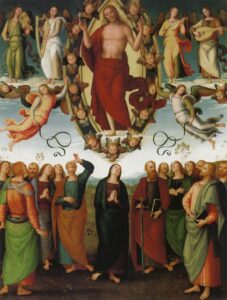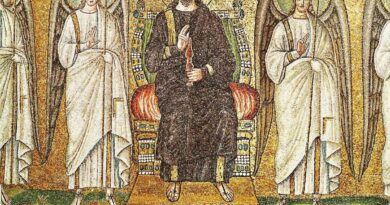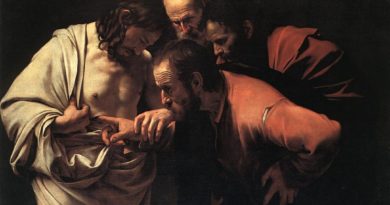Solemnity of the Ascension of the Lord
Massimo Palombella

The correct liturgical placement of today’s Solemnity would be on Thursday of the 6th week of Easter (exactly 40 days after Easter). In countries where this Solemnity is not a holiday, it is postponed to the following Sunday, the VIIth of Easter Time.
The Ascension of the Lord attests to our final destination by explicitly saying that eternity belongs to us, that we are constituted, empowered to see God, and that all our history, our choices, our joys, our sorrows, our labours, our freedom, all slowly sculpt and shape that face that will be ours forever.
Moreover, Ascension is the ‘separation’ of Jesus from the Apostles and therefore – like all our separations in life – a great opportunity to mature towards that healthy autonomy that substantially determines our identity. And every separation immediately resonates as distance but, curiously enough, can lead us to a greater closeness, the inner one. Even the Apostles had to move from a ‘historical’ relationship with Jesus to a deeper, inner one, the only relationship that allowed them to truly live and die for Him.
We, like the Apostles, without separations do not really arrive at the truth of our relationships, we do not really become capable of living in abundance, we do not prepare ourselves for life without end.
The Gradual of today’s celebration is taken from Psalm 46 (Ps 46:6) with the following text:
“Alleluia. Ascendit Deus in iubilatione, Dominus in voce tubae.”
(Alleluia. God has gone up amidst shouts of joy, the Lord to the sound of the trumpet).
The attached music, in Gregorian Chant, is taken from the Graduale Triplex published in Solesmes in 1979. The performance is by the Choralschola der Wiener Hofburgkapelle conducted by Hubert Dopf. The music track can be found on the CD Gregorian Chant published by Universal International Music B.V. in 1997.
A blessed Sunday and heartfelt greetings.


